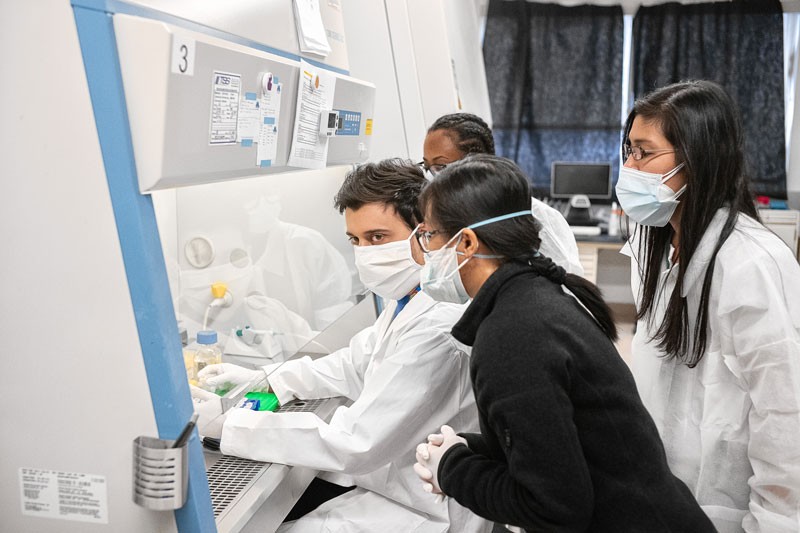So, finally, you have got a chance to study Biomedical Sciences at medical school after completing the rigorous admission process. It is an exciting opportunity to get accepted into a top-tier program as this program aims to develop an understanding of biological processes and diseases. You will learn about different treatment procedures, discover new medicines, therapies, and much more.
The biomedical sciences program helps students understand the basic structure and essential processes at a molecular and cellular level. Students will get the opportunity to collect, organize and analyze data and learn fundamental biological laboratory techniques and skills.
If you are wondering how to complete your biomedical sciences program, here are some good study practices and learning methods for first-year students to ace their biomedical sciences coursework.
- Attending Lectures Regularly
Regularly attending your lectures is the key to success. Students who attend their lectures attentively can absorb a lot of new information and find it easier to prepare for final exams. Usually, lectures introduce you to important topics and provide essential information that is important for final exams. They are usually based around a slideshow presentation including pictures so that you will gain a better understanding of the content.
During lectures, you are encouraged to participate in the discussion and ask your professor questions. It will boost your confidence and communication skills. To get the most out of your lectures, stay focused and listen to your teacher. Focusing on what you are taught during lectures will help you take effective notes and prepare you for exams.
- Prepare for Labs
It’s no surprise that medical school is a rigorous academic endeavor. Students are required to get ready for the unique academic challenges and develop some basic clinical laboratory skills to perform actively during labs. In fact, labs are a perfect reflection of the medical procedures you will be performing in your future career. Being a biomedical sciences student, you are required to perform lab work efficiently. For many medical courses, memorization of facts matters most, while some medical courses, such as microbiology, anatomy, and physiology, emphasize clinical laboratory-related skills.
Therefore, it is important to prepare for your lab classes by reading the lab procedures and instructions ahead of time. During your lab classes, the lab instructor will show you how the equipment works or medical procedure is performed. You can develop a better understating of the procedure by watching the procedure on YouTube. Remember, the skills you will learn in labs will improve your GPA and your career prospects.
- Find the Perfect Study Space
In order to improve your academic performance, you need to complete your assignments on time, learn fundamental medical concepts, revise lectures regularly, and get ready for the class quiz. It will be only possible when you follow an independent learning approach and set aside a dedicated study space.
Biomedical students have so much information to learn and memorize. Creating a dedicated study space will provide you with a distraction-free environment where you can easily revise material for your exams, complete assignments and research topics for your presentations.
Designate one room as your study space where you can easily learn the intricate terminologies and complex concepts. Make sure the room is free from distractions where you can enjoy studying and feel comfortable.
- Read a lot
Being a medical student, you need to read a lot. From anatomy to physiology, cardiology to biochemistry, students need to learn a lot of subjects in medical school. Acquiring knowledge through reading is one of the effective learning strategies that will help them succeed in medical school and career as well.
Developing the reading habit can help medical students meet the medical education needs, improve knowledge and sharpen their critical thinking skills. It will improve your clinical competencies and help you learn about diagnostic and therapeutic procedures. You need to create a study schedule and set aside time for reading to study better in medical school.
- Improve Your Note-Taking Skills
Believe it or not, note-taking is one of the most important skills every medical school student needs to master. In fact, developing this important skill will help students succeeding in medical school. Students should attentively attend a lecture in order to absorb all the points discussed during lectures. Though it is difficult to note each and every word your professor says during the class. Figuring out the important points and note down the key details can help you prepare for the exams.
During your first year, you will get to know about biological structures, chemical properties, abbreviations, definitions, and other basic information. There is no need to write down every definition; you will find them in textbooks. Focus on important points that make it easier to understand the complex medical concept. Students who note important points find it easier to concentrate on the specific topic, solidify their knowledge and learn concepts that are important for the board exams.
Final Thoughts
Biomedical science is an interesting field of medicine. If you find an opportunity to study biomedical sciences in a top medical school, make the most out of this opportunity by becoming a smarter student. To succeed in a Biomedical Sciences program, you need to follow these simple studying tips to become a successful student and get an impressive GPA.







